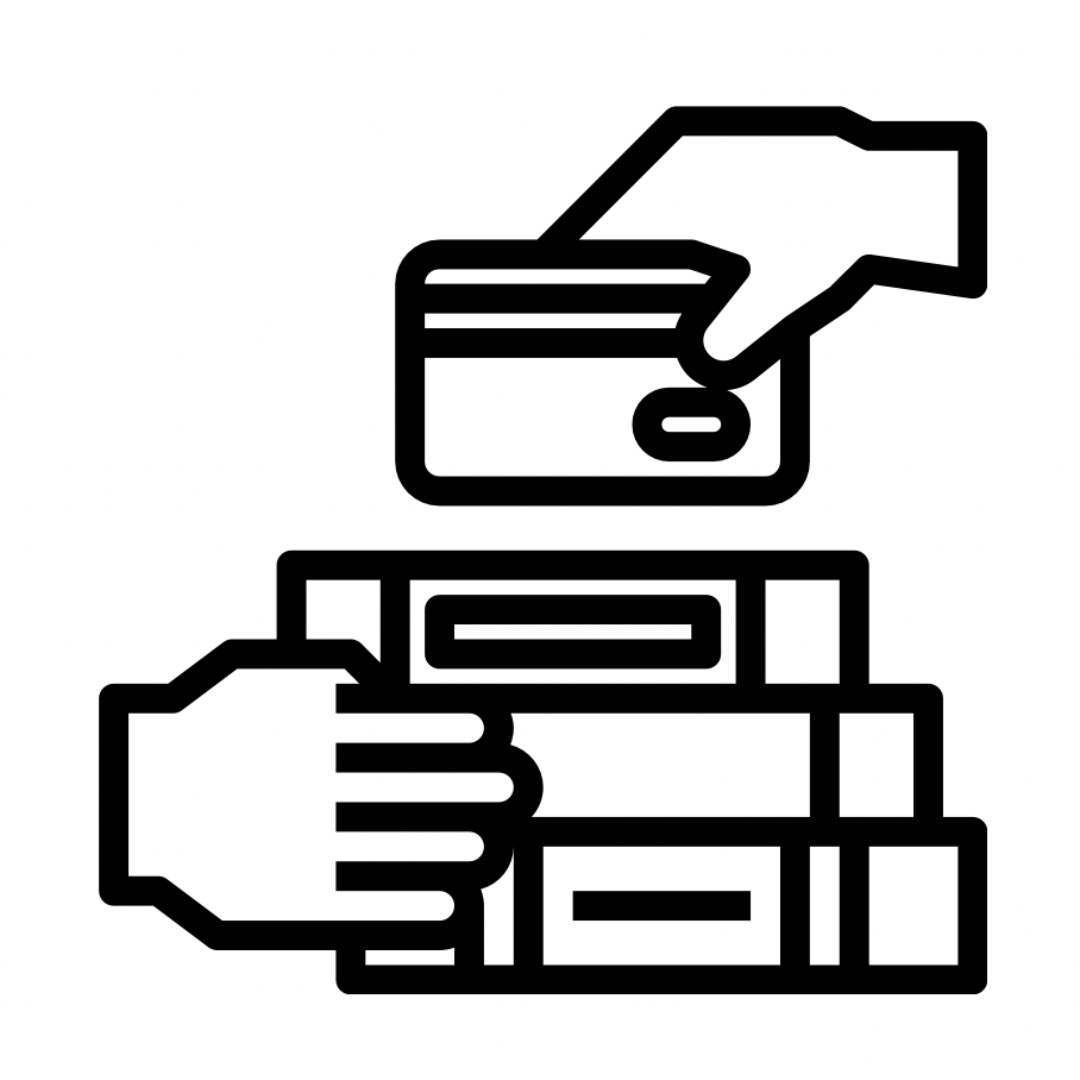Purchasing vs Loaning
Reading can be an expensive hobby, especially for those who enjoy romance novels and read frequently.
In this section, we will explore readers' choices between purchasing books and borrowing them. I surveyed avid readers to find out how much they spend on books each year, and their answers may surprise you.
Chart 17: Where Readers Get Books
Main Insight: A whopping 96% of respondents buy books online.
Further Insights: 66% of respondents Buy from In- Person Chain and Indie Bookstores.
Chart 18: Where Do You Most Often Get Books?
Main Insight: 52% of participants predominantly get books online. 13.5% comprises loans from friends/family (1.5%) and local libraries (12%). The remaining 34.5% comprises purchases from in-person locations: (27%) at chain bookstores and (7.5%) at independent bookstores.
Kindle Unlimited
Kindle Unlimited (often referred to as KU) was launched by Amazon in July 2014 as a revolutionary way to access ebooks. For $9.99 a month¹⁹, readers could access a lending library of 600,000 ebooks²⁰, which has since climbed to over 4 million titles in 2023.²¹ Since its foundation, KU has been strategic in how self-published authors could use their platform. There are advantages and disadvantages to using the platform. It is easily accessible to anyone with a computer and internet connection. Nevertheless, to make your ebook available on Kindle Unlimited, you must give exclusivity to Amazon. The amount authors earn can change monthly depending on the size of KU’s global fund—but on average, Amazon pays around $4.78 per 1,000 pages read.
Amazon Market Dominance
“Amazon generates around $28 billion worldwide from book sales every year. The company is responsible for over 50% of sales from the Big Five publishers and controls between 50% and 80% of the book distribution in the United States.”²²
Kindle Unlimited is just the newest tactic to establish market dominance. Amazon being heavily used by the Big Five publishers (Penguin Random House, Simon & Schuster, Hachette Livre, HarperCollins, and Macmillan) is the final nail in the coffin. If even the giants of the industry can’t compete with Amazon, publishing is at the whim of Jeff Bezos.²³
Hopefully, he’s a lover of literature!
Chart 20: Total Spent on Books
Main Insight: 75% of participants spent at least $100 on books in the last year. 21% spent $100-$200, 31% spent $200-$500, and 23% spent $500+.
Chart 19: Book Related Services
Main Insight: 58% of participants have Kindle Unlimited.
Citations for this Section
Source 19:
Campbell, L. (2014, July 18). Amazon launches Kindle Unlimited in US. The Bookseller. Retrieved May 5, 2023.
Source 20:
Amazon. (n.d.). Kindle Unlimited Frequently Asked Questions Retrieved May 8, 2023.
Source 21:
Campbell, L. (2014, July 18). Amazon launches Kindle Unlimited in US. The Bookseller. Retrieved May 5, 2023.
Source 22:
Haines, D. (2023, April 11). Does kindle unlimited pay per page pay authors fairly? Just Publishing Advice For Writers and Authors. Retrieved May 4, 2023.
Source 23:
Curcic, D. (2023, January 17). Amazon Publishing Statistics. WordsRated. Retrieved May 4, 2023.






